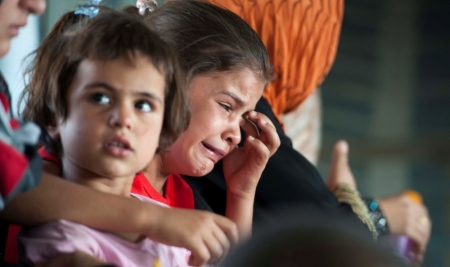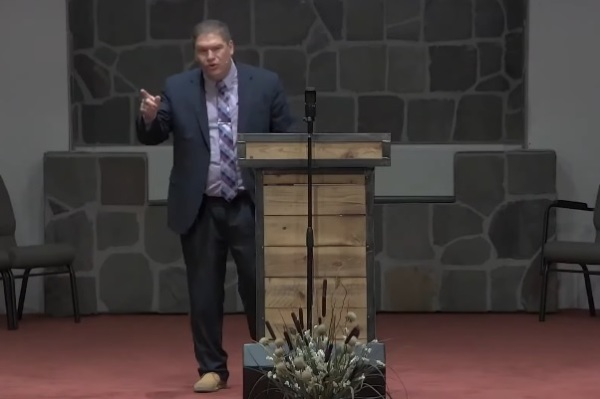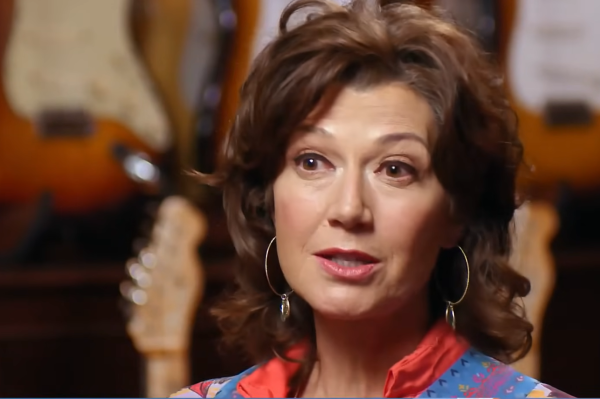Oxford Christian Apologist: Without Suffering in the World You Might Not Exist (Pt. 1)

A U.K-based Christian apologist has penned a new book dealing with suffering and why God allows it to continue in the world.
Vince Vitale, senior tutor at the Oxford Center for Christian Apologetics in Oxford, England, recently penned the book, Why Suffering?: Finding Meaning and Comfort When Life Doesn't Make Sense, with theologian Ravi Zacharias in order to challege the most common assumptions Christians make about suffering.
In an interview with The Christian Post, Vitale shared some of the points he makes in the book about why suffering exists and how it shapes the world we live in.
"We picture ourselves in this world with all this suffering. Then we picture ourselves in a very different world with no suffering, or with far less suffering, and we think: Shouldn't God have made me in that other world? And the assumption that we usually don't think through is that it's very likely it would not have been you or me who could have existed in that other world," he said.
"And so, I think sometimes when we understandably wish for a very different sort of world, we're unwittingly wishing ourselves out of existence," Vitale asserted.
A world with absolutely no suffering would include drastic changes to our psychology, biology, the laws of nature and the way that we function. A world where many aspects of our existence are altered might give birth to a completely different breed or being, according to Vitale.
To illustrate his point about how people sometimes fantacize that their lives could've been better off if, for instance, their mother had married a different man, Vitale shared a story about his parents' dating relationship before they were married.
"My parents were on their second date and they were standing on the Brooklyn Bridge and my dad noticed a ring on my mom's finger and he asked about it. My mom said, 'It's just some ring one of my old boyfriends gave to me; I just wear it because I think it looks nice.' So my dad said, 'It's nice, let me see it.' So my mom took it off, handed it to my dad, and [he] threw it off the bridge," he recalled.
"What if my mom had thought: 'This guy's crazy, I need to run back with the old boyfriend.' I might be tempted to think that could have been better off for me. Maybe the old boyfriend would have been taller, better looking or would have had more money. But if I think that way, I think I'm thinking incorrectly, because I'm assuming that it would still be me who existed in that different scenario," Vitale emphasized.
He explained that his mother could've had a different child that might've been better off, but it wouldn't have been him. The story illustrates how many people view suffering and the possibility of it not existing.
"If throwing a ring off of a bridge could be enough to change who my mom winds up marrying, and therefore whether or not I come to exist, if changing the world so radically that we remove all the suffering from it were to occur, I think that raises the question of whether or not it would have been me or you who would have come to exist?" he asked.
Vitale added that he believes suffering is a result of "free decisions of free beings," but admits to wondering why God would allow it to continue to exist throughout the ages.
"Once free beings make a choice, once the world has fallen into a broken state, why would God allow that to continue?" Vitale asked. "And I wonder if one of the reasons why God might allow that to continue is if it allowed for a world in which certain people would come to exist."
Vitale also addressed free will in human beings and if the concept could actually exist without the suffering that sometimes comes from their bad decisions. Some free decisions do not bring suffering, such as choosing which color shirt to wear, or deciding not to see a movie on Tuesday night. However, if God only allowed for that amount of free will, it might also lead to limited freedom for His creation, according to Vitale.
"When we start to talk about meaningful freedom, the freedom to either step into relationship or to step out of relationship, I don't think you could get that sort of freedom without there being the possibility of suffering," Vitale asserted.
"If God wanted to create beings that He could be in a loving relationship with, they would have to be free beings, because that's what it means to be in a loving relationship — for both parties to have made a free choice to be committed to each other."
Vitale emphasized that he doesn't think God could allow for that "great good" without giving people the ability to say "no" to a relationship with Him or others.
The book, Why Suffering? is available for purchase wherever books are sold.






















